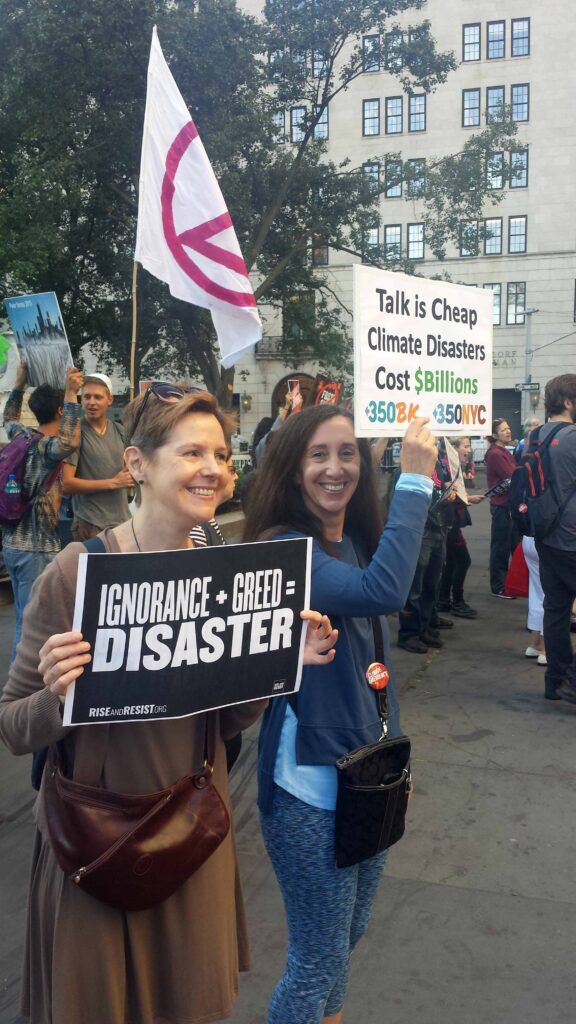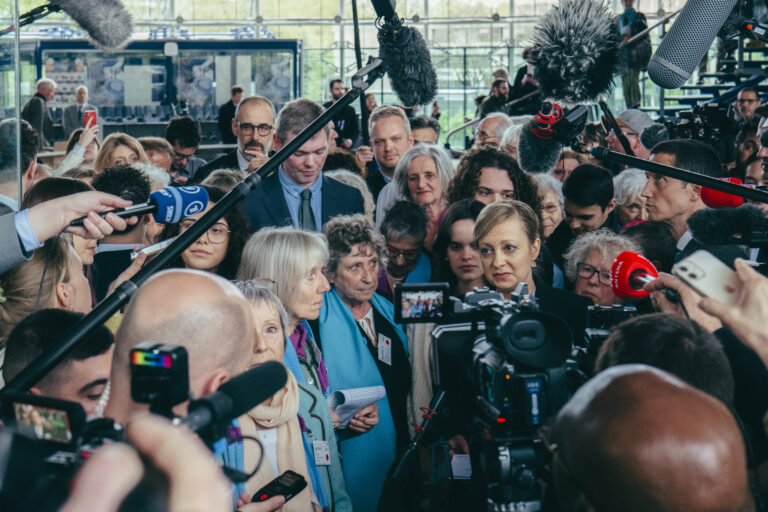Since Donald Trump entered the White House six months ago, there has been an extensive and well-documented pull back from environmental targets across the corporate world. But a movement of public pension funds are looking beyond his presidential term to secure financial backing for a more climate-friendly future.
“New York City is ready to take a stand and be loud about it,” says retiree Dorian Fulvio. Having worked in the city since 1985, Fulvio began investigating her pension fund shortly before retiring from her post as the chief information officer for the comptroller — the city’s chief financial officer and auditor — in 2014.
“I connected the dots that my pension – what I was going to rely on for the rest of my life – was all wrapped up in fossil fuels. And so I needed to do something,” she explains.
Fulvio is one of thousands of members of the New York City Employees’ Retirement System (NYCERS), which manages over $89bn (£66bn) of pension money for the city’s workers. It has a significant history of leveraging its capital in favour of the climate, having voted to divest from fossil fuel reserve owners back in 2021.
Led by comptroller Brad Lander, the NYCERS scheme recently issued an ultimatum against its asset manager firms, including Blackrock, for backing down from their climate commitments. They argue that while investment in fossil fuels is evidently damaging to the climate, it’s also a worse financial outcome for shareholders.
We can’t continue to invest in things that are harming us
Dorian Fulvio
Pension funds are a unique yet powerful tool for climate campaigners. Globally, these funds represent over $46trn (£34trn) in assets, but they remain one of the largest institutional investors in fossil fuels. In the UK, it is estimated that every pension holder has an average investment in fossil fuels of over £3,000, according to Make My Money Matter.
“Climate risk is financial risk, and we can’t continue to invest in things that are harming us,” explains Fulvio.
Unlike some other funds, pensions are designed for a long term trajectory. An employee in their twenties today may not be claiming their retirement until the 2070s, by which time researchers predict the global economy could halve in value without immediate policy action addressing the risks of the climate crisis.
The shareholder is seen as two people: the employee putting money aside today and the retiree spending that money in decades to come. So the pension fund’s fiduciary duty – a commitment to act in the best interest of the investment’s returns – extends to a future in which the climate crisis will have real and costly effects on our societies.
“New York City keeps moving ahead in spite of what’s happening in this current political context, and to kind of combat it too,” says Cassie Cain, climate finance campaigner at Stand.earth, a non-profit research centre providing solutions to climate issues.
Despite this, “there are more fears [from pension funds] of being sued over fiduciary issues”, Cain cautions.
“That’s kind of the climate right now, where people who are taking certain progressive policies are targets, legally.”
This conflict between short-term political shifts and long-term investment outcomes has already led to a lawsuit against NYCERS. In March, three retirees with pensions in the fund accused it of neglecting its fiduciary duty by divesting from fossil fuels.
The case was dismissed by the appellate court after the plaintiffs “failed to establish standing because they did not demonstrate an injury” on their “speculative” claims.
As to the latest ultimatum, their asset managers have until the end of the month to respond. Fulvio is cautiously optimistic about their response. “How they manage their portfolios for the European market is already considering these things,” she points out. Their will to replicate these practices in the US remains to be seen.




